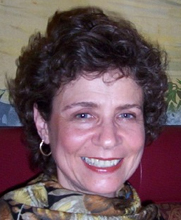 |
||||||||||||||||||||||||||||||||||||
|
||||||||||||||||||||||||||||||||||||
|
Questions & Answers - July 2004
Dear Mary,
I am the primary caregiver for my mother who has many health problems including newly diagnosed dementia. She is a diabetic and needs constant monitoring of her blood sugar and supervision over what she eats. She needs help with just about every aspect of living and cannot be alone for very long because she eats everything in sight and is very forgetful. She is also giving me a hard time about bathing. I do the best I can but my brother is causing me grief. He lives in another state and visits maybe once a year but calls every week to check up on me. He doesn’t believe Mother needs as much help as she does and thinks I’m exaggerating. I am considering hiring someone to come in once a week to help but made the mistake of telling him. He is now trying to get financial Power of Attorney away from me. How can I make him understand that I can’t keep doing this alone? Dear Reader, One of the cardinal rules about caregiving is never criticize the caregiver until you’ve walked in her shoes. I think your brother needs a wake-up call. Invite him to come take care of his mother while you go away for a few days. This should be enough to educate him about how much help she requires. Also arrange a meeting with her primary care physician so he can learn first hand about her healthcare needs. Stand up for what you want and don’t back down, your health and well being are on the line. * * * Dear Mary, Level of Care means the amount of care required to meet his physical and functional needs. It is used to determine where he can safely reside. For example, assisted living level of care would mean he requires minimal to moderate help and supervision. A nursing home level of care would mean he needs extensive assistance and a registered nurse to monitor his health twenty-four hours a day. It is a determining factor for medical assistance long-term care approval as well as other state and federal programs.. * * * Dear Mary, Yes, heat intolerance is a concern for older adults, and with good reason. As we age we dry up and dry out! We lose the fluid reserve so readily available when we were younger and our thirst sensitivity diminishes putting us at greater risk for dehydration. Sweating - the body’s cooling mechanism - is also decreased making us more susceptible to hyperthermia. Some of the first signs of dehydration to watch for are confusion, dizziness, and falling. Symptoms of hyperthermia include headache, nausea with or without vomiting, fatigue, and muscle spasms. Prevention is the working word here. It is wise to stay in an air-conditioned environment on hot days. Always have plenty of clear fluids on hand and offer them to your loved ones frequently – don’t wait for them to ask. Fruits like watermelon, grapes, and oranges are also good sources of fluid. Older skin burns faster so when outside keep them under the cover of a large beach umbrella and use a sunscreen with a skin protection factor (SPF) of at least 15. Lack of insight, judgment and awareness from dementia puts your father at greater risk for injury. Someone should be with him at all times, especially if he is near water. He may also be more confused and agitated in a strange environment, so reassurance, familiar faces, and a quiet room for him to retreat to will help keep him calm. Falling is the number one fear of all older adults and your parents are at even greater risk due to their disabilities. Sand, especially, is an unstable walking ground so be sure your parents wear sturdy shoes, not floppy sandals, and someone should be available to assist them where ever they go. * * * .Dear Mary, My wife has stopped eating and drinking and seems to have given up. She is only 65 but has suffered from Alzheimer’s disease for several years. I do the best I can for her and although it is a hard job I don’t regret it. I am in a dilemma about how to handle this. Should I try putting a feeding tube in as her physician recommends or should I just let the nature of the disease take its course? My family is divided on this issue and I want to make the best decision. Dear Reader, My advice is to contact Hospice for a consult. They will guide you through the decision making process in a professional and compassionate manner. * * * Email Mary: info@gero-resources.com It is illegal to reprint articles, in any format (including emails, websites, etc.), without explicit written permission from the author of this article and / or Empowering Caregivers™ |
|||||||||||||||||||||||||||||||||||
|
|
||||||||||||||||||||||||||||||||||||
